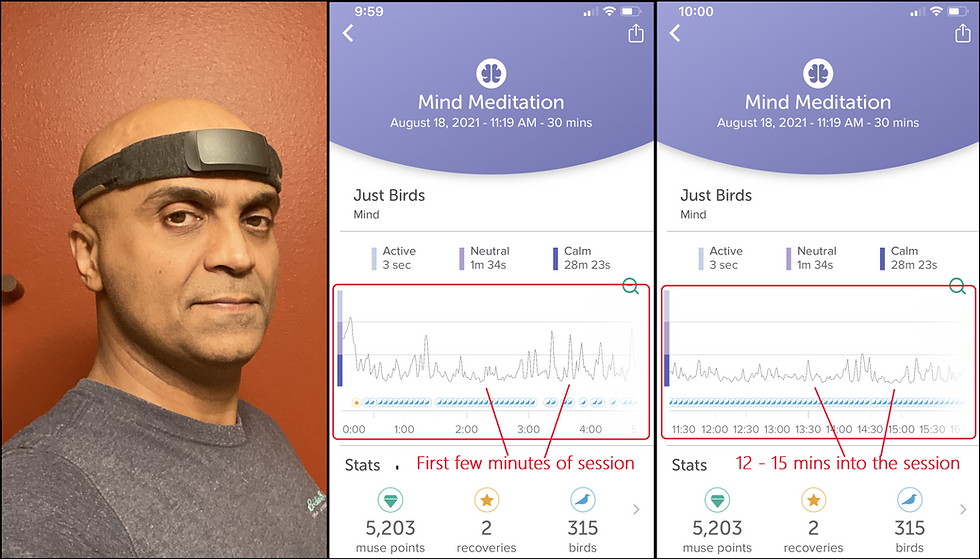The Three Imps of Buddhism: Nine Months after my 10-day Meditation Retreat
- Kris Shankar
- Jul 11, 2022
- 2 min read
Updated: Aug 7, 2022

Over last Thanksgiving, I attended a 10-day silent meditation retreat at the Dhamma retreat center in the rural setting of Onalaska in Southern Washington (read my account here). Nine months down the road, people often ask me what residual benefits I still retain from my ten-day bootcamp. Despite my practicing the recommended daily one hour of meditation only sporadically, one thing that has stuck with me are the Buddhist teachings of Imperfection (Dukkha), Impermanence (Annica) and Impersonality (Anattā). I call them the three Imps of Buddhism.
In Buddhism, Imperfection or Dukkha is suffering resulting from our inability to accept the reality of things and acknowledge that our expectations will frequently not be met. How many of us respond with irritation when we are cut off on the highway? With impatience when our wait at the doctor’s office turns in a half-hour? Or give in to a deep swell of anger in reaction to the war in Ukraine, or in Washington DC? While I am still guilty of all these reactions, I am able to catch myself once in a while. It’s the imperfect nature of the world, I tell myself. Things can be no different than they are at this moment.
Impermanence is the transitory nature of all phenomena, good and bad. It’s easy to wallow in self-pity when I am down with a cold. To sink into depression when my frozen shoulder hasn’t healed in 7 months. Or to panic when I see my stock portfolio down by 30%. On better days, I again catch myself. All things will pass, the cold, the frozen shoulder, the market downturn, even the war in Ukraine.
The Buddhist teaching of Anattā or Impersonality (my translation) is the hardest to grasp. If you search online, you will find it translated variously as “the non-existence of the self” or “lacking in essence”. In my opinion, it just means that you are not your thoughts, your emotions or your personality. As a consequence, you do not need to fall victim to your moods, cling to your beliefs as strongly, or judge yourself as harshly when you don’t live up to your own expectations. Easier said than done, right? Let me tell you that you cannot achieve this mental switcheroo by thinking or willing it to happen. On the other hand, if you sit through 10 days of silence just observing your breath and your thoughts, you are very likely to experience the truth of this viscerally because you have built just a little bit of the muscle required to observe your own mind.
If I was worried at prospect of losing my personality and turning into a mindless zombie, my fear was misplaced. On the contrary, I have found that with the newly developed muscle to observe my own mind, I am able to every so often catch that constantly chattering, judging, measuring and self-critical voice in my head and go “that’s not me, that’s just my mind doing its thing”. When I catch that inner voice in the act, I find that the torrent of thoughts, emotions and reactions in my head subsides and quiets down, even if only for a little while. And when I don’t, it’s ok. Like all phenomena, the mind is Imperfect and even inner silence is Impermanent, remember?




Comments